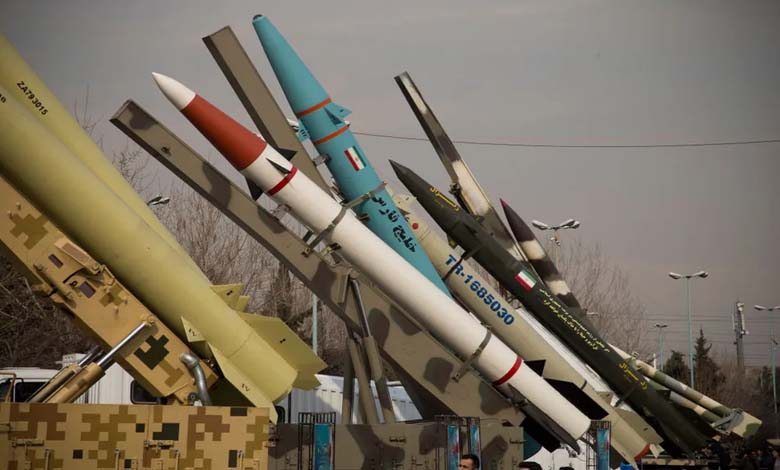U.S. Report: Iran Supplies Long-Range Missiles to Iraqi Factions for the First Time

Despite reports suggesting that Iran intends to scale back its support for Iraqi militias to avoid retaliatory actions from the Trump administration, Tehran has taken a significant new step.
According to a report published Wednesday by The Times, Iran has, for the first time, supplied Iraqi armed factions with long-range surface-to-surface missiles — a move regional intelligence sources describe as a major escalation aimed at bolstering Iranian influence in the region, in direct defiance of U.S. pressure and Washington’s demands for the disarmament of militias in Iraq.
The covert operation involved smuggling these missiles across the 1,000-mile Iran-Iraq border. This marks a first in terms of both the type of weapons transferred and the timing, amid rising tensions and explicit U.S. threats to strike militia positions if they refuse to disarm.
-
After Iraqi Factions Abandoned It, Khamenei: Iran Does Not Need Proxies in the Region
-
Leaks from the Secret Meeting: Iran Refuses to Support Hezbollah and its Iraqi Militias Against Israel
This development raises serious concerns about Iran’s true intentions. It contradicts earlier hopes that Tehran might reduce its support for armed groups, particularly in the context of possible negotiations with the United States regarding its nuclear and ballistic missile programs.
The report notes that Iran is reinforcing its military presence in the region with this new hardware — dashing expectations that it might withdraw support for Iraqi factions and thereby spare Iraq from potential American retaliation.
Meanwhile, certain factions — such as Kataeb Hezbollah, Harakat al-Nujaba, Sayyed al-Shuhada, and Ansar Allah al-Awfiya — have reportedly expressed an unprecedented willingness to scale back their military activities, largely out of fear of possible U.S. military strikes. Reuters reports that some factions have already begun evacuating their main headquarters in major Iraqi cities since early this year.
-
How does the Iraqi Prime Minister confront Iranian threats and the US presence?
-
In Iran’s Eid Sermon: The U.S. and Israel Present with Warnings
However, Kataeb Hezbollah has strongly denied any intent to disarm and has threatened to sue Reuters for what it described as false reporting.
U.S. sources have warned that Iran’s continued support for these armed groups could lead to a significant military escalation, including targeted airstrikes inside Iraq. U.S. Secretary of Defense Pete Hegseth has reportedly urged Iraqi Prime Minister Mohammed Shia’ al-Sudani to dismantle the militias immediately.
According to American intelligence, the risk of U.S. military intervention will persist unless Iran takes meaningful steps to disband these groups.
-
Drill or Disengagement? Has Iran Abandoned Its Regional Arms?
-
Iran Threatens to Carry Out Strikes in the Kurdistan Region
The Times report also highlights that some of the smuggled Iranian missiles have ranges extending beyond the region — potentially reaching into Europe. This has heightened international concerns over the broader implications of such arms transfers for global security.
Within the factions, leadership sources indicate that Iran’s Islamic Revolutionary Guard Corps has given these groups the green light to take measures they deem necessary to avoid a full-scale confrontation with either the United States or Israel.
-
Syria Accuses Hezbollah of Carrying Out Attacks and Sponsoring Cross-Border Smuggling
-
Iran Reshuffles Its Strategy by Appointing Naim Qassem as Khamenei’s Representative in Lebanon
This reflects Iran’s efforts to strike a delicate balance: maintaining military influence while avoiding direct conflict — exposing deep contradictions in its regional strategy. On one hand, it supplies advanced weaponry to its allies; on the other, it signals de-escalation to avert war.
In the end, Iran’s recent moves in Iraq underscore the ongoing inconsistencies in its regional policy, amplifying uncertainty over the political and security future of Iraq and the broader Middle East.












